Attendants always know. They are the pumping heart of a hotel.
Not the General Managers, not the owners. Attendants.
They master the ancient ability to move between rooms, restaurants, meeting rooms, hallways, offices and laundries without being seen. A good attendant is like a urban myth: you sometimes hear a story of someone that actually met one but he’s always a friend of a friend of a friend.
They’re silent ninjas with a thing for cleaning other people’s mess.
So the worst thing that can happen to them is to break this cycle of invisibility. That’s like the ultimate capital sin of the profession. An attendant can be found napping exhausted by the laundry machine and it would not be a big deal. But if they open a room door while a guest is in it, well… that’s another story.
Sure, softwares help and etiquette says that a good attendant should always knock three times before opening a room door (even though that room is under renovation since 2003), but even the most experienced attendant can accidentally open an occupied room door and this is never good news.Hang-overing on a hotel bed is not the best image anyone wants to leave to the world, so when somebody violates the sanctity of a guest hotel room chances are that you will get a complaint or a pretty nasty review.
So how can you help your attendants to avoid this awful situations?
Get some “Do not disturb signs”. Oh, that simple?
Hmm, not really. Let me rephrase it: get some GREAT “do not disturb signs” and make sure your guests use them, as having them hanging out on the closet or on a drawer won’t do much good, will it?
A good sign needs encourage guests to put it up. So many time guests don’t put it up because they just can’t be bothered to go back to the door. So something fun and relevant might encourage them to do it.
A good sign should also clearly be showing if the room is occupied, some signs look the same when they’re occupied or ready to be cleaned. And we don’t want those elusive ninja attendants to not see it changed from occupied to free.

A good sign should also be in the spirit of the hotel and the guest, so formal hotels might want something really boring.
So, what would convince your guest to use a DNDS? Here are some suggestions. We’ve made a booklet of the best Do Not Disturb Signs which you can download here, there’s plenty more in there.





For more Inspiration on Great Do Not Disturb Signs, download our 25 Best Do Not Disturb Signs e-book.

Recently I was approached to do an interview on my background and how I came to build a hotel tech startup. It took a lot of introspection on my part to look over the years and string the pieces together how this all culminated to RoomChecking.
The truth is, building a startup in any vertical isn't easy. The hotel industry is a fantastic industry made of some of the best and most service minded people I have met. But that doesn't make building a startup any easier, maybe that is why I consider RoomChecking as one of the best startup experiences.
Now that we're growing, bigger and faster and have hundreds of hotel clients around the world things seem great. I'm hoping other entrepreneurs who read this can take some value from it and maybe avoid some of the mistakes we did.
Jonathan Weizman is a fascinating innovator. He was part of the original tech boom before the dot-com crash and the lessons learned back then fueled his professional path from lost dreams in New York City, up to the return to France and co-founding RoomChecking, one of the very rare software solutions on the market for hotel maintenance and housekeeping – in fact, in many ways, a pioneering system that helps hotel staff work better not harder.
"I was a millionaire on paper at the time everyone believed the web will revolutionize the world," Weizman tells me with a nostalgic smile. Then he goes on talking about the odd financial machinations of the time when investors advised failed startups to wipe investments from their portfolio just to keep the investor's portfolio positive. Back then, he worked for a company that was a pioneer in GPS technology that had a good product
"But when the industry crashed all investments stopped suddenly. So, the company I worked for did not sell. I left the company. I lost my dreams," Weizman recalls. This was a valuable lesson later on. The young entrepreneur left NYC and returned to France where the overall negative environment triggered by the failure of so many startups presented a career building challenge.
He then worked in investment banking, later as CTO for Dane-Elec, till the high-tech wave started over and he returned to innovating in web technologies.
"Being innovative is not a noun but a verb," Weizman says, describing his career path. "It is a continuous movement where you are in the dark, where you don't know if you're doing right. Many people talk about successes or failure, but few describe the journey. When you discover that the path you explore won't make it, after investing so much time, energy, money, and taking the decision to move forward with a new idea, you feel your soul crushing like the waves of a tsunami. It is hard to maintain a family life because you basically get married to your project. There is no other choice than to focus totally on the project. In this context, I lead a team of ten engineers to build My Ditto, a NAS you could access remotely with literally zero configuration. I filed 5 patents and was awarded patent rights. Then things went so fast: we were awarded CES Innovation Award in Las Vegas in 2010, then Best of Macworld in 2011. But the company I worked for did not understand marketing and sales strategy. When they finally agreed to invest in marketing, it was too late, and they failed. I don't blame them, but I felt frustrated."
Are tired of staff floor never being aware of the check out?*Give RoomChecking a try now

This anecdote is one of the many Weizman has to share from his past. He finally decided to become his own boss, and, with RoomChecking, he has a successful product since 2013. RoomChecking was founded in 2013 as a project between Jonathan Weizman , Aaron Marz, and Emile Lugassy. The company is already a Microsoft Ventures Paris promising startup and has a dedicated customer base of 150+ hotels. Earlier in 2017, they got 750,000 EUR late seed-funding from several hotel groups and BPI. The road was not easy, but the lessons learned from the past helped develop a product which provides hotels the tools to improve guests' experience and deliver total customer satisfaction.
Microsoft Ventures helped the project a lot, Weizman says. "At Microsoft Ventures I was the only guy who pitched with a two-pages Word document! Some other participants told me they thought I was old school and laughed at me, but it looks like I made it. Microsoft Ventures gave me so much: support, training, access to top entrepreneurs, and networking." These are the things small startups need to succeed, the CEO of RoomChecking believes, although he is aware that the "B2B hospitality market suffers from being too small or too hard to penetrate."
"It is difficult to be honest because, as in every human interaction, when you fail you tend to blame the other parties involved," he told me relating RoomChecking's quest for funding. "We met with over 30 investors and the overall feeling was that they did not buy our vision."
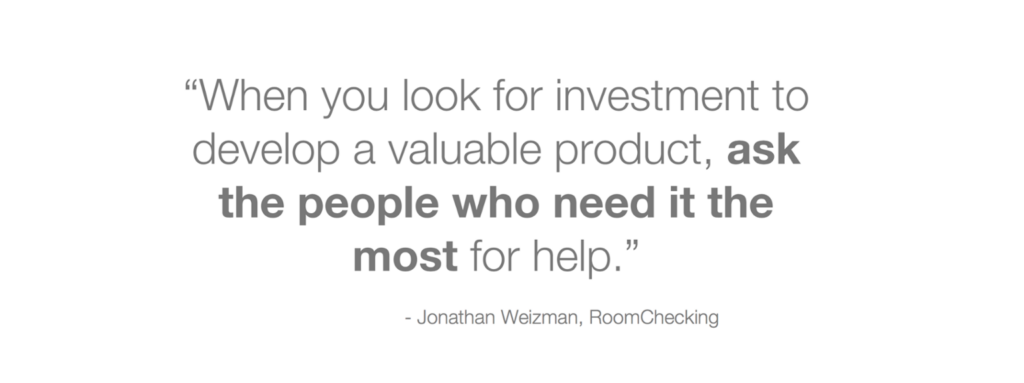
Surprisingly though, the funding came from the people who needed RoomChecking the most: hotel groups looking to diversify and move into the technology space. "Investment came from existing clients who understood the value of RoomChecking because they were using it for a year or so," Weizman said, and this is the takeaway of the journey: when you look for investment to develop a valuable product, ask the people who need it the most for help.
ifteen minutes for a stayover, thirty minutes for a checkout: that’s the average amount of time attendants spend to prepare a hotel room, according to industry statistics. To put things in perspective, on any given day, a fifty room hotel will only take around sixteen hours to be cleaned up completely. But does it really?
This article will focus on the time wasting habits you and your staff probably indulge in, without even realizing it, and how you can break them with the use of technology.
According to history books, the oldest fragment of what we today know as paper dates back to the second century BC. This means over two thousand years of documents, birth certificates, wills, mortgage applications and, of course, room attendant assignment sheets.
On an interesting article published on the official Adobe blog a few years ago, Jon Perera, VP of Product Management, wrote that “ink on paper symbolizes significance, workmanship, the culmination of a long process”
and that “as a society and a culture, we’ve agreed that these milestones of our lives deserve to be recorded on paper.”
That is true, for the most part and, on a archetypal level, we all can understand and relate to the symbolism and the emotional significance that comes with written words on a physical, tangible support (reading Hemingway in hardcover is a complete different experience from doing it on a Kindle, isn’t it?) , but is that true when it comes to managing your hotel too? Well, the short answer is “no”, but let me elaborate.
When I first joined the hospitality industry, the only experiences I had in hotels were during my summer holidays or business trips. I spent most of my adult life coding and analyzing data so I knew little to nothing about the etiquette of hotels, that (I later discovered) are made of internal hierarchies, guest relationships and, of course, paper. A lot of it.
Due to my professional and academic background, I have never completely understood the whole romanticism behind it, and I judged this almost-bureaucratic way of managing internal communications as a huge obstacle to work efficiency. So, when I joined RoomChecking in 2013, I was driven by finding a way to optimize workflows that I perceived as heavy and unscalable, slow and unorganized.
From an engineering viewpoint, the amount of paper exchange between hotel departments on any given day is just unimaginable, especially when it comes to communications between housekeeping, maintenance, front desk and management.
If you’re a hotel General Manager I am sure you already monitor and track the average amount of time your attendants spend preparing a room, but have you ever analyzed how much of that time they waste flipping through sheets to browse which rooms they need to do and in what sequence? And, eventually, even when they do have the paper in order, there’s always the early check-in or the late check-out that force them to apply changes over changes to the original sequence, causing more time wasting and confusion.
The main problems with paper based housekeeping and maintenance solutions, isn't that it is paper, but rather that it isn't quite as efficient as it could be.
Improving housekeeping and maintenance efficiency doesn't need to be through an advanced system as RoomChecking, it helps, but any hotel can begin with baby steps. Creating WhatsApp groups or other simple "hacks" can already improve things.
When implementing a solution - RoomChecking or other - here are the main issues to take into account.
So, it is pretty obvious that morning routine for attendants is already hard enough: first of all the unpredictability is an intrinsic aspect of their job and, on top of that, they never know in real time if a guest has checked out or not. They arrive to the hotel, spend a tremendous amount of time doing morning briefings and preparing daily assignment sheets and then the “knocking routine” starts. Nobody likes having a complete stranger opening your door when under the shower, but this is the only way attendants have, in order to actually start working: to knock on each door to make sure guests are not in the room. How more frustrating this can get? Well, it can, because of all the departments, probably attendants have the strictest deadline: if check in time is at 2:00 PM, rooms need to be done by then, no matter what.
A few years ago I was sleeping in a hotel and the receptionist was talking to someone via a walkie talkie. I found it so completely anachronistic that it almost had some kind of vintage beauty. When I asked him what he was doing, it turned out he was trying (unsuccessfully, apparently) to get in touch with the housekeeper to inform her about a guest late check out request.
As archaic as the tool might have been, I saw it as the expression of a unsatisfied demand in the industry: the need of a inbound communication system for attendants, allowing them to receive real time alerts from the front office department about priority changes (301 asked for a late checkout), generic questions (is 402 ready?) or special requests (honeymooners in 505, put a complimentary champagne bottle).
And system like this should to be simple, effective and frictionless and, honestly, a walkie-talkie just isn't that. Here is where a WhatsApp group isn't the optimum solution, because unless you know who is cleaning or preparing room 402, 505 and 301 your communications will just arrive in a large chat-room. A proper system will bring the communication to the right person and if it isn't urgent, it wont interrupt them but show it to them when they're done with what they are working on.
Are tired of staff floor never being aware of the check out?*Give RoomChecking a try now
Moreover, during the day, attendants often need to communicate with other departments or with their supervisor. They might be out of supplies, notice something wrong in a room or they can simply bump into a guest that asks them a question they don’t know how to answer. When this happens, they have to stop whatever they’re doing, go to see the General Manager, inform him about the issue and then get back to work. Not only this is time consuming, but it negatively impacts the quality of work of all the departments involved. On top of that, General Managers tend to be busy people and they’re often unreachable, slowing down the whole problem solving process even more. Attendants, more than anyone working in hotels, should be able to communicate directly (and, most importantly, without stopping what they’re doing) to virtually every department. Frictionless communication is the key factor when it comes to efficiency and, usually, non verbal exchanges between hotel departments are pretty far from being efficient.
Mankind's most important resource is time. As Zen-ish this may sound, it happens to be true. And when it comes to business, it happens to be even truer. So being careful with this precious resource is not only advisable, it is essential. And the best way to be careful with time is to avoid to waste it. RoomChecking vision has always been about working smarter, not harder.
And not because we are lazy engineers, but because we know that once an hour is gone, it’s gone forever and, no matter how big your hotel is or how high your ADR can go, you cannot buy it back. So establishing an efficient communication system between departments is one of the most important improvement you can make in order to develop efficiency, reduce costs and improve profit.
And, not least importantly, your attendants will be grateful.
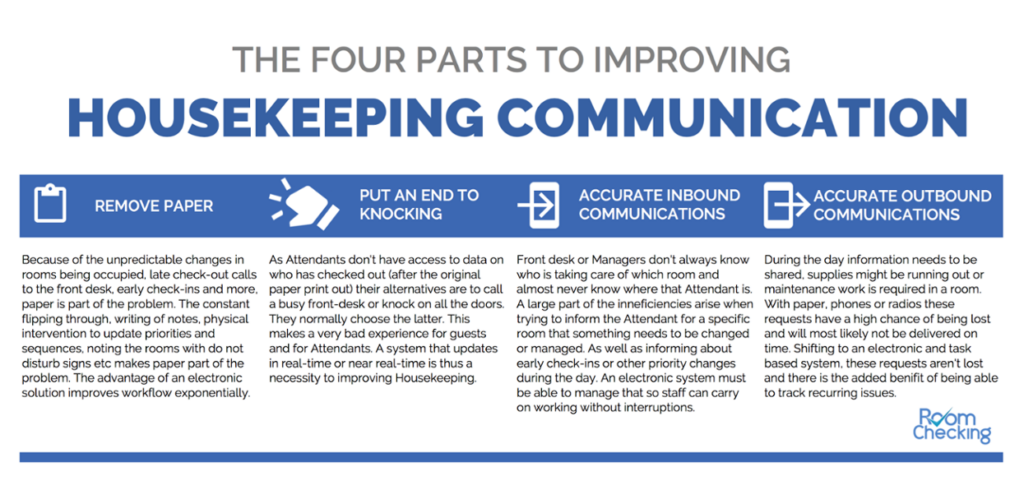
"No man is an island entire of itself. Every man is a piece of the continent, a part of the main” wrote the poet John Donne. He was talking about mankind, of course, but the concept is universal and can be applied to almost everything.
Yes, even to hotel departments: front office, housekeeping, sales and marketing and F&B are, in fact, pieces of “the continent” and “part of the main” as well. Poetry apart, the reality is that no department can work in total autonomy. What makes a hotel “a hotel” is teamwork, frictionless communication and collaboration.
Frictionless internal communication is what creates the “magic” guests feel when entering a smooth well-run hotel.
That is why coordination between departments is essential in order to offer the best guest experience possible, which is, at the end of the day, the final goal of any hotel (behind being profitable, of course).
In our experience in helping hotels, we found out that some departments seem to work naturally better together than others: sales & marketing and revenue management teams, for example, cooperate and exchange ideas and suggestion on a daily basis and even though it’s not uncommon that they disagree on certain strategies, these disagreements often lead to constructive discussions and more solid strategies.
There are some departments, on the other hand, that tend to have an intrinsic high level of friction, miscommunication and misunderstanding that, if not corrected in time, can lead to open rivalry and blame games between employees whenever something goes wrong.
Relationship between front office and housekeeping departments is probably the best example of this counterproductive dynamic. But let’s put this straight: there’s nothing wrong in these two departments per se, in fact it is safe to say that they are the pumping heart of any hotel. General Managers can take a few days off to go skiing, but with no receptionist or maids even the best hotel will inevitably crumble.
The problem relies entirely on the quality of communication between the departments. In this article we will try to understand better the reasons why communication between these two departments is so difficult and how it can be improved.
Let’s go back to the frictionless cooperation mentioned above and let’s see what the main differences are. Sales & marketing and revenue managers often share the same office, with no distractions, no telephone ringing or guest asking over and over where the closest fast food is. If they need to solve a problem or find the best way to integrate rate strategy and paid advertising, for example, they can close the office door, focus and get the work done. With front office and housekeeping, on the other hand, this is never the case, as guest interaction (as much satisfying and enriching it might be) can be frustrating and it’s nearly impossible to be “in the zone” when you’re checking in a group of 100 guests or you still have five rooms left to clean when it’s already check in time.
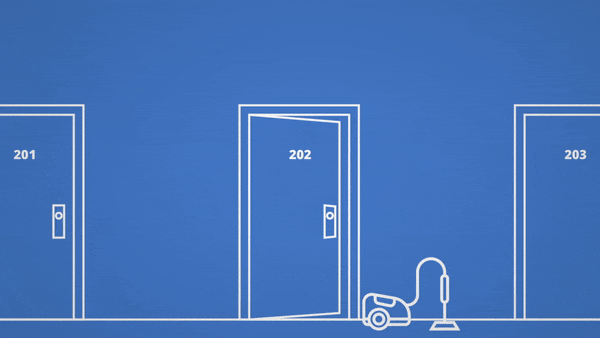
Ironically, though, front office and housekeeping are the two departments more deeply linked to each other: a receptionist will not be able to assign a room until this has been cleaned and, vice versa, a maid can not know what room she should prioritize if front office does not provide a proper list with room status updates.
To understand better what could be the cause(s) of this difficult relationship, we at RoomChecking interviewed several hotels around Europe and tried to find some recurring patterns. We asked both front office and housekeeping departments four simple questions:
What is the hardest part of your job?How would you define communication between your departments and, if you could improve it, how would you?Last minute schedule change are inevitable (late check ins, early check out, etc.), how do you promptly adapt to these emergencies?Do you think technology can improve the quality of your work?
Answers were very interesting and, even though some problems seem to be universal, it looks like each hotel deals with day to day unforeseen in slightly different ways, meaning that the main problem very likely relies on the lack of company standards and precise processes when it comes to communication between these two departments.
The great majority of Attendants we interviewed agreed with the fact that the hardest part of their job is to keep the cleaning standard as high as possible, even in situation of high stress (overbooking, rooms under maintenance, etc.). When it comes to family run hotels, in particular, this is always the number one concern: to provide a perfectly cleaned room in time to every guest.
We even found out that one of the main adversity that slows down the room cleaning procedure is the poor conditions in which some guests leave their rooms when they check out. We were told stories filled with nasty details, probably too graphic for this article, but if you have a strong stomach you may want to check out our article about the ten weirdest items lost & found in hotels here. This can increase dramatically the average time needed to clean up a room, with all the bad consequences that this brings.
When it comes to front office, the main issue seems to be the difficulty to get in touch with maids in cases of emergency. We can relate to that, and if you’ve ever worked on the other side of a hotel desk, you know how frustrating it is to have twenty guests waiting in front of you when you are not sure if their assigned rooms are ready or not.
According to all the answers we collected, the worst case scenario is when there’s a group checking in or a MICE event with participants sleeping at the hotel, especially when the rooming list provided is not 100% accurate and last minute changes are inevitable. This can cause delays, stress and friction, especially because it looks like front office and housekeeping departments have no real idea of the issues the other side has to face daily, so they tend to lack on empathy for their colleagues.
A General Manager we interviewed realised that this was creating misunderstandings and anger, slowing the whole process down, so he solved it using a simple yet ingenious trick: cross-training. Once a month he rotates employees of both department for a day, so that they do understand better the problems and the stress of each other. Rivalry between departments is never a good thing and it can be disastrous when it comes to front office and housekeeping, so this can be a great and inexpensive tip for your hotel.
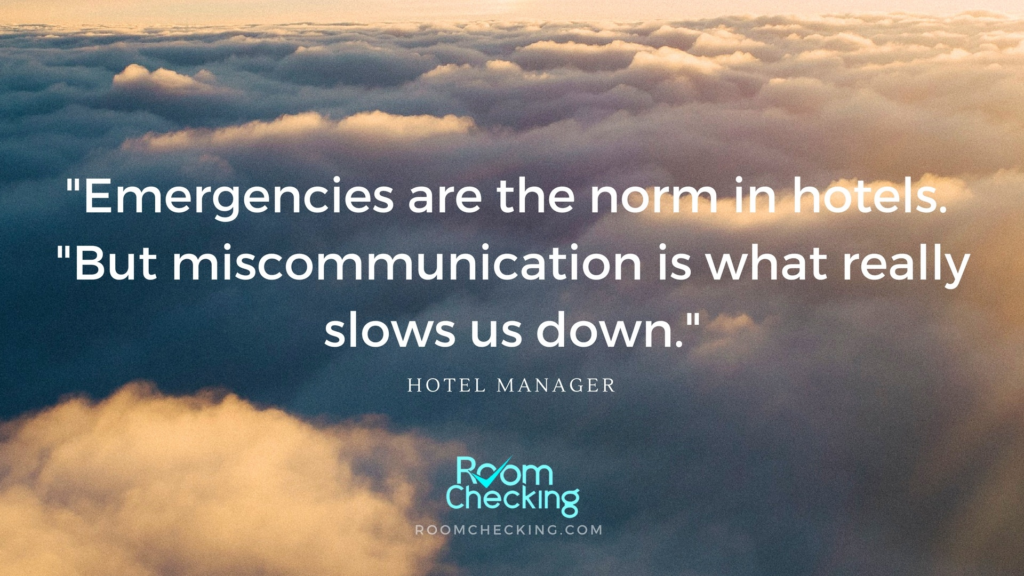
Quality of communication between these two departments was definitively the question to which both answered with the same answer: in best case scenario we had a few “average” scores, but the majority were between “poor” and “complete disaster”.
It looks like every hotel we interviewed tried different approaches in order to improve communication, but no one was completely happy with the outcomes.
We heard some clever and some funny solutions, like the use of mobile phones, WhatsApp groups, Snapchats, walkie-talkies and even 90’s pagers!
Bottom line: there’s some serious improvement margin here.
Note, our CTO wrote an article with the four steps to improve hotel communications that is worth reading if you're interested in implementing a solution.
When it came to the third question, the one about last minute changes and emergencies, we honestly expected a complete different feedback, but it looks like both receptionists and maids deal with unforeseen way better than we imagined.
One hotel in particular told us (and we quote literally) that “Emergencies are the norm in hotels. We deal with them every day. But miscommunication is what really slow us down”. So, again, it seems like the biggest problem is not dealing with emergency itself but, again, the lack of coordination between departments. Once the problem is spot is usually easy to fix, but getting in touch with who has to fix it, well, that’s another story.
According to The Guardian, two-thirds of Americans are concerned that, in the near future, robots will perform most of the work done by humans. This fear seems unrealistic when it comes to hotels, but when we asked the question about technology we received a few replies with this tone: some hotels seemed pretty scared to integrate technology, stating that the the “human factor” can never be replaced.
Oddly, these hotels were the ones who gave the lowest score to the question about quality of communication between departments. A housekeeper of a five star hotel told us with a straight face: “we don’t need computers, we need more time!”, but when we tried to explain her that technology can actually speed up processes and “create” more time, she seemed skeptical, confirming the Guardian’s theory.
On the other hand, the majority of properties answered that they are already integrating new software in order to improve internal communication or are thinking about doing it in the near future.
When we started these interviews we were already convinced that communication between departments was one of the main problems of any hotel, but we honestly did not expect to get so many replies confirming our thesis.
Here at Roomchecking, we are very proud to help hotels overcoming these difficulties through state of the art technology, created to help your staff work better, not harder.
And no, robots will not steal your job. At least not yet.
Frictionless internal communication is what creates the “magic” guests feel when entering a well-run hotel. But there are some departments that have an intrinsically high level of miscommunication and misunderstanding that, if not corrected, can lead to open rivalry and blame games between employees whenever things hit the proverbial fan. The traditionally turbulent relationship between the front office and housekeeping department is too often the headline act and, as with any sibling rivalry, is based entirely on the quality of communication between the two.
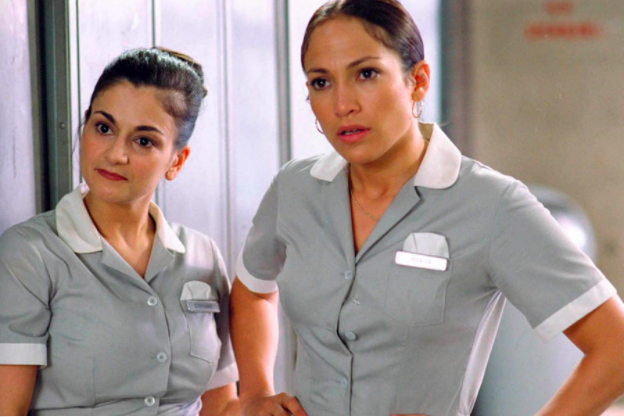
Understanding the bottlenecks is important and this has only become possible with the rise of the smart PMS that allows for useful software integrations. Dynamic planning, real-time status updates and instant communication can lead to unprecedented cost management for a hotel, let alone reduce heated arguments. For example, when a guest checks out housekeeping could be automatically alerted via a smartphone or device so they don’t need to wait around or manually check at reception if it is ok to prepare the room for the next guest.
Furthermore, excellent housekeeping is all important for guest satisfaction. According to a survey commissioned by cleaning products brand CLR and conducted by TNS, 86 per cent of hotel guests cited cleanliness as the top criteria they look for when reading online hotel or holiday rental reviews. The survey also revealed that eight out of ten guests would rather give up internet access for the duration of their than stay in a dirty hotel or rental.

There have long been interfaces between PMSs and telephone systems that enable housekeepers to dial codes on handsets to confirm to reception that rooms are ready. But in an age when Apple is preparing to launch its most advanced smartphone yet with facial recognition and Amazon has announced it has the technology to automatically enter your home to deliver services, the future of housekeeping management must lie in the ability for tech companies and the hotels themselves to embrace mobile.
In short, this means you should be able to run your hotel with less resources and deliver a higher quality experience for guests.
Housekeeping is, arguably, the most inefficient operation in any hotel. Amidst a labyrinth of rooms with enigmatic guests slipping in and out, clipboards and printed reports are too often the only compass housekeepers have to navigate through their daily chores. According to a workflow calculation by productivity management experts d20, the daily work of a maid consists of 18 tasks. Yet it is estimated that housekeepers spend about 10 to 15 per cent of their time just trying to find the next room to clean.

Shockingly, most hotels still use walkie-talkies to communicate between front office and housekeeping but with the technology now available, maids could use a smartphone, potentially their own, to login into the PMS and check which rooms are ready to be cleaned, change the status of the room when they are cleaned and inspected, or even check the guest's name before knocking on the door. Hotels need to be able to rely on their system and know that when a room is inspected it will instantly be returned to the front desk. Having more availability allows receptionists to move bookings around faster without having to interrupt housekeeping workflows with a constant barrage of re-prioritizations.
Yet, as when implementing any new technology, training is key. "Embracing technology in housekeeping is a significantly longer journey than for any department. It’s important that you appoint someone who specifically champions this new culture and who is in charge of the results. Someone who is not afraid of technology and driving change,” says Mews CEO Matthijs Welle.
For example, the Mews PMS issues an informative graphic called the Activity Report, where one can see exactly when rooms are returned as ‘clean’ back to reception. Despite the fact that housekeepers usually start at 8am, the reports often show that the bulk of rooms are still returned back to operations around 3-4pm (see chart below), which also happens to be the time cleaners leave for the day and hand a sheet of paper with the rooms they have inspected back to reception. But if they are arriving so early why are rooms not inspected earlier during the day? The problem lies in the lack of access to the Mews mobile app by the housekeepers and is down to a lack of training of staff. The technical solutions are there but staff are not always using them and we at Mews must help hotels shift into this new age of mobile technology. "We find that, in hotels where they actively use the Mews app, guests check-in significantly earlier,” Matthijs continues.

It appears that the evolution of mobile housekeeping solution has bifurcated into two rough lines:
1) More task/rota management and list based solutions like RoomChecking and Optii.
At the recent Hotel Technology Revolution conference, Jonathan Weizman of RoomChecking described how guests are looking for experiences and exceptional service and that housekeeping has become the front line. “We have seen a drop of 70% of internal phone calls because of our technology. Not to mention the fact that rooms are always ready on time,” he revealed.

Meanwhile, Optii estimates cleaning times by examining guest type and use-pattern and then reliably predicts, manages and optimizes your housekeeping schedules in real-time. They have successfully converted many skeptical housekeeping veterans to use their software and drastically improve their operations.
2) More behavioural management solutions with interactions and communications at their core like HotelKit, an integrated 'Slack-for-hotels’ style system. A hotel's operations team can quickly and pro-actively assign tasks and schedule assignments from the HotelKit app.
As we wrote about in our focus on the future of the hotel experience, Yotel’s Yobot and Aloft Cupertino’s Botlr are already storing luggage and handing out pool towels respectively while the new terminal at Singapore’s award winning Changi airport has just opened with dozens of smart housekeeping robots to keep it looking pristine.

Fully automated housekeeping robots remain at the bleeding edge of hospitality tech. Although it is early days for this robotics niche, Rosie the robot by Maidbot claims to be the first of its kind for hotels. Maidbot have built a product to address the intrinsic high variable costs of housekeeping, the reality that room attendants have the highest injury rates in the service sector and that current commercial cleaning practices are woefully inconsistent.

Another automatic robotic solution is the TASKI Intellibot range of commercial automated robotic cleaning machines from Diversey Care. The fully-automated commercial floor cleaners should leave any hotel team to focus on other revenue-generating and value-added tasks, although their robots are not necessarily designed for the intricacies of room cleaning.
A housekeeper’s cart is their de facto office. A well-organized and well-stocked housekeeping cart is the key to efficiency. It enables room attendants to avoid wasting time looking for a cleaning item or making trips back to the linen room for more supplies. The specific amounts of items loaded onto a cart will vary according to the types of rooms being cleaned, the amenities offered by the property, and, of course, the size of the cart itself. A room attendant’s cart is generally spacious enough to carry all the supplies needed for a half-day’s room assignments.

Out of necessity, many hotels say they are replacing cumbersome carts with smaller ones akin to golf caddie bags and are extolling their convenience and unobtrusive appearance. So crucial is this organisation that replicating a housekeeping cart at your home is often touted as a cleaning secret to steal from wise and skilled hotel maids.
Clipboards, common errors such as cleaning the wrong rooms and an inability to communicate during emergencies should be relics of the past. Although hand holding is important for the transition to digital, hospitality software companies need to build solutions for housekeepers that don’t require days of training and which are affordable for even the smallest of operators. In addition to helping hotels increase productivity, mobile solutions can aid in the elimination of paper waste created by the multiple printouts in many housekeeping departments. The digitising of data also makes it easier for managers to compile and pull reports in real time for overall operations status.

With the rise of disruptive platforms like AirBnB, new formats of hospitality are emerging consisting of clusters of apartments across multiple locations that still need to be managed like a traditional hotel. Hotels may soon stretch their business models to include cleaning properties outside of the hotel or even use tools and sites like Staffmatch to outsource parts of their operations. In any case, mobile technology will be particularly crucial for future-proofing housekeeping operations as accommodation becomes more complex and disparate.
The drawbacks of adopting such a system? There is an academic argument to be made that, had a cloud based housekeeping app been integrated into the operations of the fictional Beresford Hotel in the romantic comedy Maid in Manhattan, then Jennifer Lopez may well have been alerted to the presence of a room guest and would never have met Ralph Fiennes and lived happily ever after…but that harrowing example aside, the future of housekeeping appears mobile and cloud based.

For more information about MEWS PMS Click Here
Business travelers’ expectations, as opposed to leisure travelers, are that the hotel will help them fulfill the duties for which they came in the most efficient way possible. When something goes wrong that hinders their ability to do their job, their view of the hotel will depend on the staff’s ability to quickly remedy the issue.
Business travelers are in search of a no-nonsense experience that provides exactly what they need when they need it. They are not making booking decisions or choices about their stay based on emotions; they are looking for somewhere they can work and sleep and maybe have a bit of respite from a hectic workday. They value in-room amenities that will help them complete the business they came to do, such as a coffee machine and an ironing board.
While location is one of the most important factors to business travelers, the most important amenity in a hotel is the availability of WiFi; in fact, a majority of business travelers would book with a hotel directly in exchange for free WiFi throughout their stay. If there is a problem with the internet connection and the hotel is unable to fix it quickly and provide a viable alternative in the meantime, or if the hotel fails to provide the in-room amenities mentioned above, they will look to take their business elsewhere upon future trips.
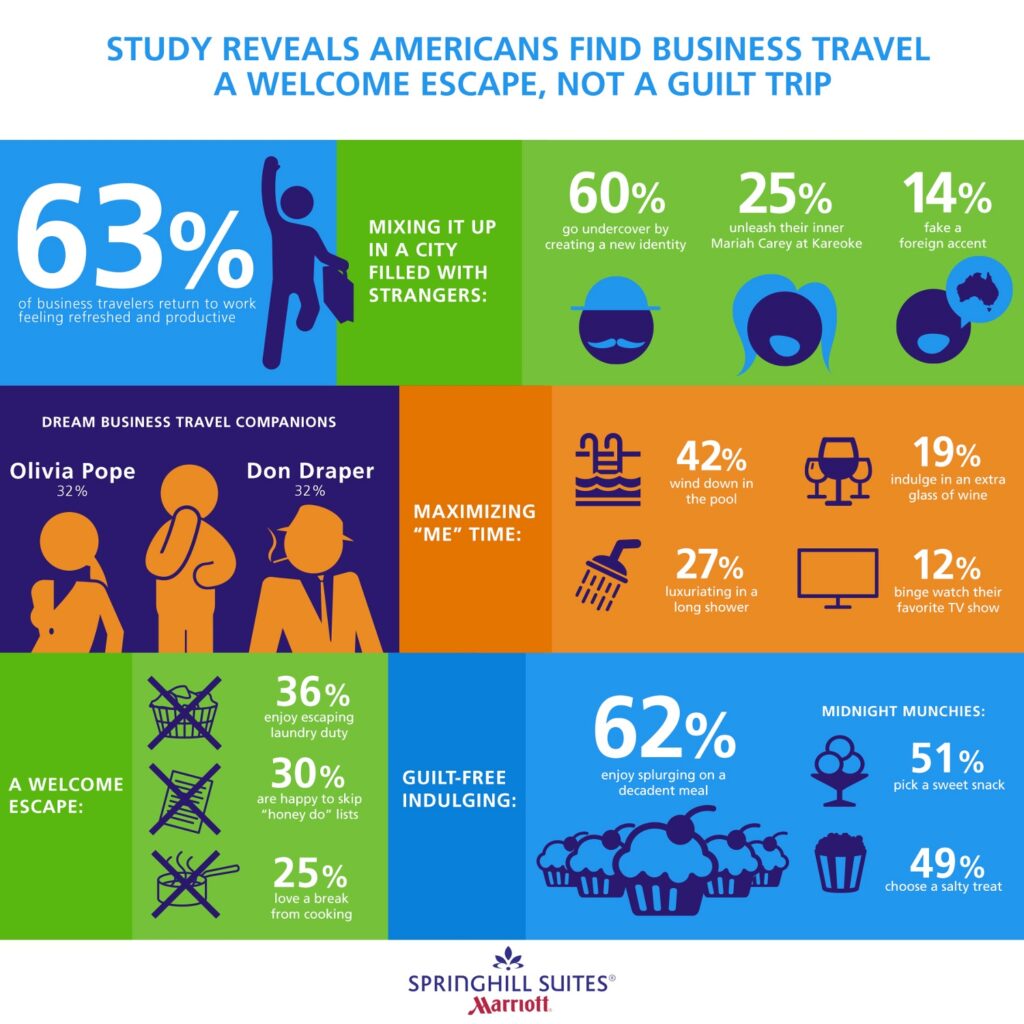
A key difference between leisure and business guests is the possibility of a corporate or loyalty plan with the traveler’s company. Though this means that guests may not be paying for the trip themselves, this is no excuse to skimp on quality of service, as their dissatisfaction will be reported back to the company and the hotel could risk losing more than just one individual client’s business.
For a hotel optimized to cater to business travelers, organization and efficiency reign supreme, so any adopted solution should help the hotel achieve the highest standard possible of both for satisfied guests.
With €750,000 in seed funding, we're building the company and product to grow faster and service clients better.
We’ve had a great time at ITB in March - our first-ever participation to this prestigious industry fair was a success. ITB was an important step in a journey that spans three years of challenges and accomplishments: RoomChecking is a world-class tool that modernises hotels and alleviates stress at every level of housekeeping and maintenance operations. We've grown to a team of 11 staff and onboarded hotels from luxury to budget across the world. We've researched and negotiated hardware deals with most of the smartphone manufacturers on the market. And we are counting 50+ certified PMS integrations.
Now we are happy to share more good news about our evolution and growth: we managed to raise 750,000 EUR seed funding to improve our platform, and to expand our team and our user base.
Our prime task is to improve the product for scale while building more integrations, We’re building up our support team to manage the existing clients and all those in the queue. Great hotels understand that technology will help them take guest experience to the next level and they’re our priority because they know what the real work is all about.
Our backers are the French groups Astotel Group, Maurice Hurand Hotels, and BPI. Astotel counts 16 hotels in Paris, while Maurice Hurand Hotels boasts properties such as the Terrass’ in Montmartre and Hotel Madison opposite the church of Saint-Germain-des-Près. Both companies trust RoomChecking to keep evolving at the forefront of technology.
Speaking about the investment, Serge Cachan, CEO of Astotel, said: “We see technology as one of the biggest differentiators in the future of hotel operations and those who adopt technology will be those who deliver the best guest experience. Today guests expect everything to be perfect and to happen instantly. Without a solid set of technology tools, it will be very hard for hotels to live up and exceed guest expectations. Implementing RoomChecking has been an important part of leveling up our group’s service quality. RoomChecking has provided us with the certainty that we’ll always be on top of all the maintenance and housekeeping activities in our hotels. We consider it an integral part of our success.”
Adding to that, Romain Binet, CEO of Maurice Hurand Hotels, said: "We're the next generation of hoteliers in the family, so we see it as our mission to make beautiful hotels, to offer great service, and to go that extra mile investing in what will make hotels futureproof. I believe in having systems that aren't based on the technologies of the past and integrating the technology into our work. Our rooms are replenished on time, and our staff are freed up for the all important task of improving the guest experience."
RoomChecking is already financially profitable. Astotel and Maurice Hurand join an already existing user base of over 150 hotel clients from around the world - covering more than 12,500 hotel rooms, and our clients tell us that since they’ve switched to RoomChecking they can no longer imagine managing a hotel without us.
What does this mean for you? two important points, one the fact that we are receiving financial backing from hotel companies confirms that this is a great system and hotels believe in it. It also means our interests are towards hotels and making sure they can get more done faster and better serve guests. And it means we can invest more into better and faster product development and customer service.
We invite you to join the savvy hoteliers who use RoomChecking to simplify housekeeping, front office, and maintenance. In the next couple of months we will release exciting new features that will make your operations even easier, improving both staff communication and productivity.
A top priority for hoteliers is providing guests with a quality experience. Recently, I was speaking to a luxury hotel manager who told me, “Investing in our guests is investing in ourselves.” He explained that going the extra mile in service, with it bearing additional time and expenses, ultimately turned over more profit in the hotel. Top hotel chains already know this, with hotels like Hilton, InterContinental, and Four Seasons consistently topping the charts. Here are five ways improving the hotel experience can improve the bottom line :
At it’s basis, value in hospitality translates to the standard a hotel meets in relation to its pricing; in laymen’s language, it’s the “bang for your buck.” When you provide a higher standard of service, even if it’s a $5 additional expense, your guests will perceive a better value. Ideally, guests perceive the $5 additional expense as a $20 additional expense, allowing you to raise your rates slightly. Even if your hotel charges slightly more than your competitors, many guests will be willing to pay the extra money if it equates to a better experience. In fact, 80% will.
Frequent travelers are oftentimes busy people who don’t have the time to look into a new hotel with each trip. These guests seek a “home away from home” that consistently delivers to their needs. Upgrade your guest experience (and consider implementing a loyalty program) and watch popularity soar with returning guests. A cloud-based hotel operations management solution, such as RoomChecking, will allow you to incorporate room/guest-specific service requests visible to all staff. Take advantage of this feature and add thoughtful touches to the rooms of your returning guests.
On both TripAdvisor and in person, hearing from other guests can make or break future business. Potential guests rely on these reviews to make their hotel choice, but oftentimes guests with just a fair experience won’t feel inclined to say anything. Simply put, if you provide an experience worth talking about, guests will talk!
Hoteliers know that calming a difficult guest can be just as difficult as dealing with a grumpy child. Often, the hotel must extend its service, such as issuing a free room upgrade or even waving the charge of the stay, in order to diffuse the situation. Whilst there is no way to avoid all of these sticky situations, going the extra mile to provide guests with a luxurious experience can sooth a particularly picky guest.
It is also important to consider how the average wronged customer will tell 8-16 others about their bad experience. In this day and age, that number can grow exponentially with a bad online review visible to the world. Do your hotel a favor by ensuring guests a quality stay. RoomChecking makes it easy for staff to address any potential problems by unifying the team under one cloud system.
Housekeeping is a tough job, no doubt about it, but we never imagined all the dangers of the profession. Of course, maids deal with a lot of chemicals, lift heavy objects and work under a lot of pressure, but our cliché minds tends to associate dangerous jobs with firefighters, policemen, jail guards and soldiers.
And if we want to include silly jobs as well, we would probably say alligator wrestlers, but definitely not housekeepers.
Well, this was before an Italian newspaper published an article about a maid that accidentally shot a colleague in the stomach while playing with .22 handgun that had been lost by a guest.
So, next time we will think about badass professions, we’ll have to include this mexican-stand-off maid story as well.
After reading the article and contacting the hotel to check the veracity of the story, our minds started to race with a series of questions that should probably remain unanswered forever, the most important one being: who would forget a loaded gun in a hotel room after checking out?
Unless it is some Quentin Tarantino character having a couple of drinks at the lobby bar before killing Bill or rebelling to slavery, chances are quite low.
So we contacted a few friends that work in hospitality asking if they ever found any bizarre item guests left behind. We literally received hundreds of answers, so we compiled our personal top ten list.
But we'll warn you - you'll need a certain degree of stomach and humor to get through this article.
Virtually all the maids we interviewed revealed that, if the hotel they work for goes out of business, they have a plan B. With the amount of handcuffs, blow up dolls and latex masks guests leave behind on a daily basis, virtually any hotel could pivot to a overnight, especially because a very small percentage of these fifty-shades-of-grey-wannabes return to retrieve their pleasure tools…
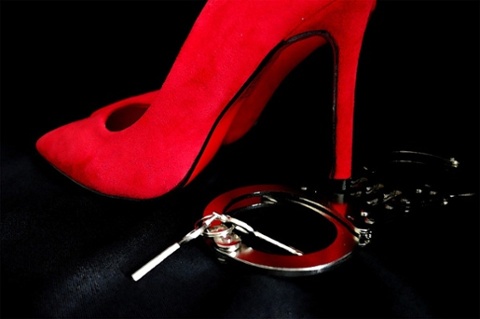
Going around with your gums exposed (and nothing else) seems to be a thing now, judging by the number of dentures left behind by guests. A housekeeper for one of the biggest branded hotels in the world, told us that they have a dozen of them, especially from early checkouters that skip breakfasts. Makes sense, as a set of teeth can come in hand when you chew and it’s hardest to forget it when you’re having your third breakfast roll.
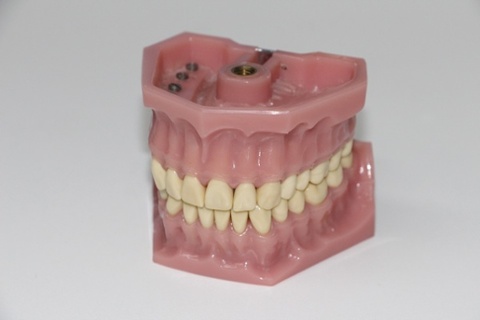
Teresa works for an independent hotel and she told us that once, while cleaning, she caught a glimpse of a human leg behind a curtain. She was so scared that someone was hiding to attack her that she ran away from the room. Turned out that it was “just” a prosthetic leg, with knee, foot and all. We asked her if the hotel she works for is located on some pilgrimage destination, because a limb is something guests tend not to leave behind when they check out, so maybe she witnessed a miracle. If you’re asking, it is not.
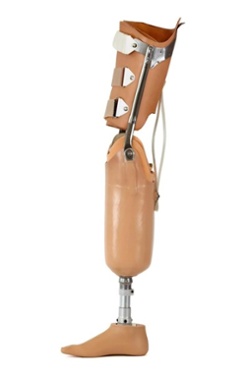
Very similar to number eight but even creepier. Remember that Edgar Allan Poe’s tale, “The tell-tale heart”? Well, nobody likes to be stalked by a disturbing glass eye, especially if there’s not a body around it. Worst part of the story is that the “bulbus oculi” was never retrieved. Thank you Katia for the nightmares!

Ear-rings or a pin aren't what we're referring to here. Someone left behind a diamond necklace worth several thousands of dollars. The maid figured it wasn't hers to keep so she turned it in. The problem was, if it had been there for a while under the bed, then whose it is? Sometimes she wished she hadn't turned it in. It was still in the hotel safe a year later and nobody claimed it…

The maid who told us this story wanted to stay anonymous (understandably, I would add). She confided that a few years ago, she found 40.000 USD in cash in a room. And we’re not talking about The Burj Al Arab, but a simple three star hotel so it’s unlikely that she was overtipped. Unsure about what to do with that kind of money she went straight to the hotel GM.
No further info about what happened to that money has been provided.
Are tired of staff floor never being aware of the check out?*Give RoomChecking a try now

A few years ago an Elvis Presley' sweat-stained suit was sold for 200.000 $, so VIP memorabilia is definitely something very precious and valuable among collectors. A couple of maids confided to us that, if a celebrity leaves something behind and the legal time to retrieve it has passed (could be 3-6 months or more, according to country regulations), then it goes straight to eBay. The money made out of the sale is then shared with all the hotel employees. A funny way to get some extra cash.

This story comes from a maid named Caterina. We don’t even know how to comment this. Back in 2001, when, during a football match, four Inter Milan supporters took a scooter into the stadium, set it on fire and threw it over a balcony. We've never understood how they managed to "sneak" it in. Now we know that one can basically bring a scooter just about anywhere and go unnoticed. Including in a hotel room, through the lobby, in the elevator and so forth.

Vita told us the story of a Japanese couple that forgot both their smartphones and their wedding rings. The forgetful lovers came back to collect the phones but totally forgot about the rings until the housekeeper told them “I assume these are yours as well…”.
Love will really tear us apart!

In an elegant four star property, a husband and wife check out and leave. Very polite couple, according to the maid who told us this incredible story.
When she came up to their room to clean it up she found they had left their 1-year-baby, sleeping like a rock in the crib. The hotel GM promptly contacted the couple while they were still heading to the airport.
What does reassure us here is that they didn't leave their child in a hot car. At least the baby was doing great and it seems wasn't too rushed to fly home.

According to a Kelton Global study conducted in 2015, 35% of americans returned to a hotel to retrieve something they forgot, at some point in their lives.
Mainly clothing, toiletries, electronic devices, jewellery, underwear and hair styling tools. But once in a while a guest leave more than their favourite shirt behind and this list the living proof. But no matter how weird, hotels need a good system to manage all the items that have been found, to tag them properly and store them so guests can be informed and the items can be retreived.
We're pretty happy that RoomChecking (yes this is a shameless plug) has a great system for that.
Now, back to the handgun incident in Italy, there’s a happy ending to that incident: after surgery the wounded maid is out of danger will come back to work very soon, with a new scar but another great Lost & Found story to tell.
It has been about a month ago already, and yet so many things we saw at ITB related to hotel technology are as exciting as ever. ITB is one of the biggest hotel conferences in the world. Drawing in thousands of people from around the globe and some of the top hotel technology startups use it as the springboard to showcase emerging hotel technology, meet new people, and discover ways to improve hotels.
With over 109,000 visitors this 5-day trade show allowed visitors to meet face-to-face with startups and established brands from around the world. This was the first year that RoomChecking attended ITB and we noticed one big trend. Hotels can really benefit from technology. We’d love to share with you some of our favorite highlights from this year’s event.
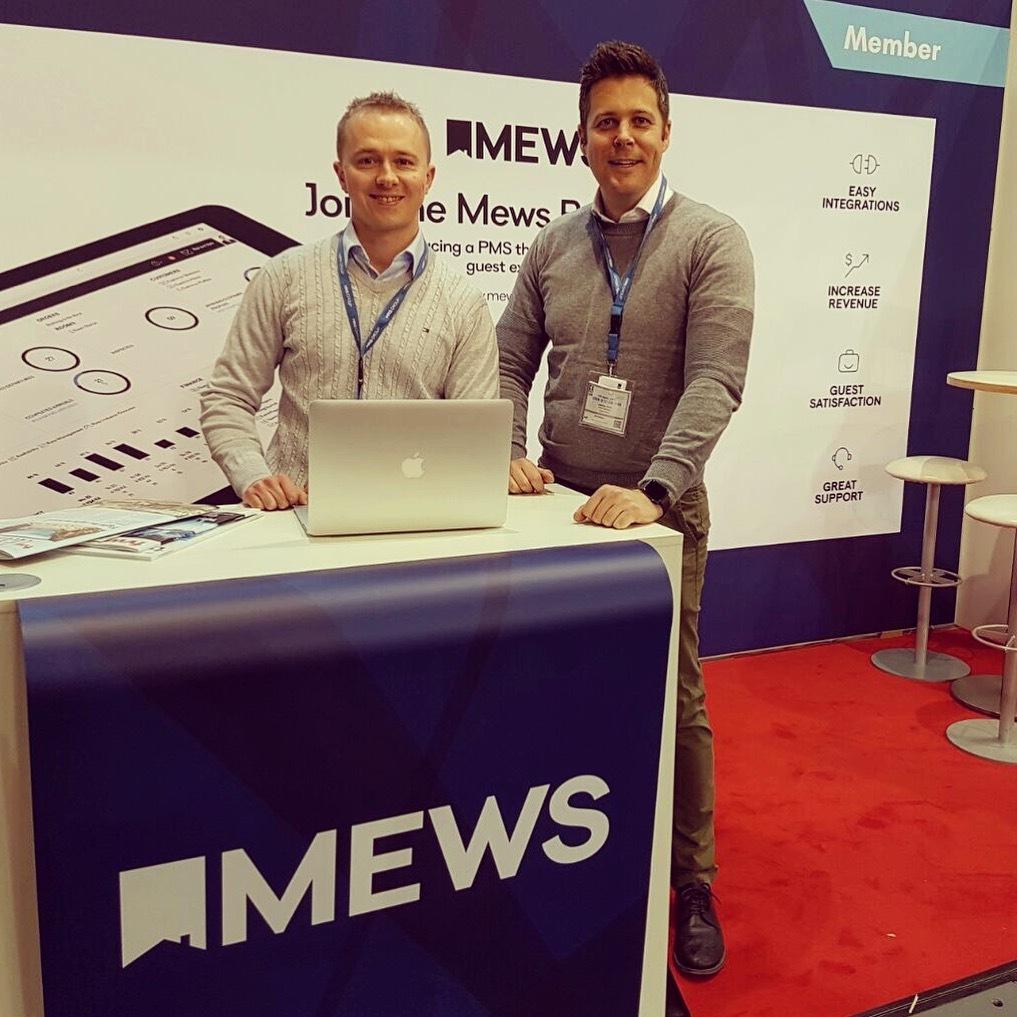
Focus: PMS System
Mews is a modern day Property Management system. What we love about Mews is the high value they put on seamless integrations. Because they put a large focus in their department they have the ability to ingrate with a variety of platforms to easily automate and simplify your operations. They also have a superb design and that's refreshing in the world of B2B hotel tech.
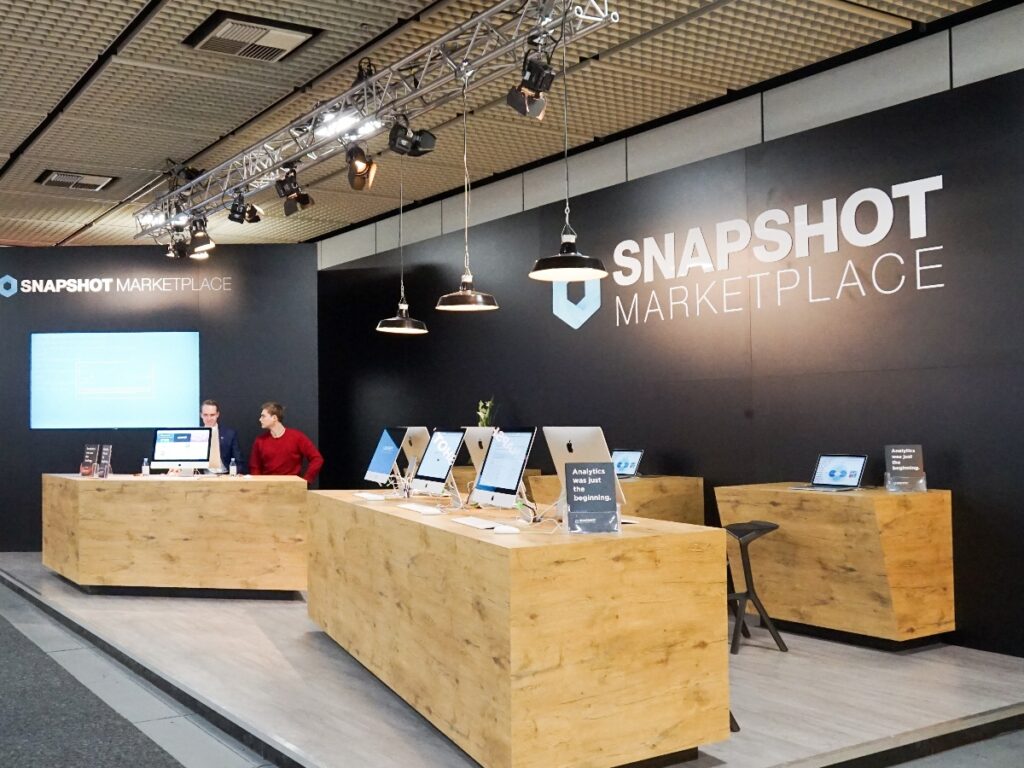
Focus: Hotel Tech Marketplace
Snapshot created a marketplace for hotels applications and provides hotel data. What is so unique about this marketplace is that it acts as a hub enabling developers to with hotel data for applications and allowing hoteliers to have easy access to these applications to download to improve their hotels. Snapshot has been around since 2013 and continues to constantly innovate.
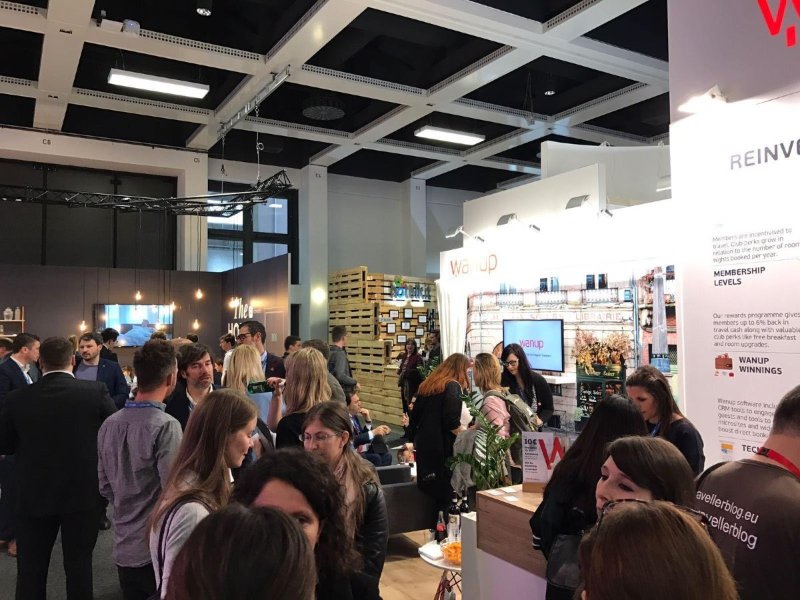
Focus: Loyalty Club for Travelers
Wanup created an exclusive club for travelers, which caters to their needs. With different level cards you are able to choose what fits best for you and your lifestyle. The more you travel the greater the rewards. They even have special sign up bonuses for new members. What we love about Wanup is their focus on the guest and ensuring their experience at the hotel is memorable.

Focus: Manage Hotel Revenue
Busy Rooms and Xotels created a strategic partnership to help me develop a revenue management dashboard tool for the hotel industry. What makes this platform so interesting is they have the able to analyze and gain an insight on the consumer demands based upon any hotel size.
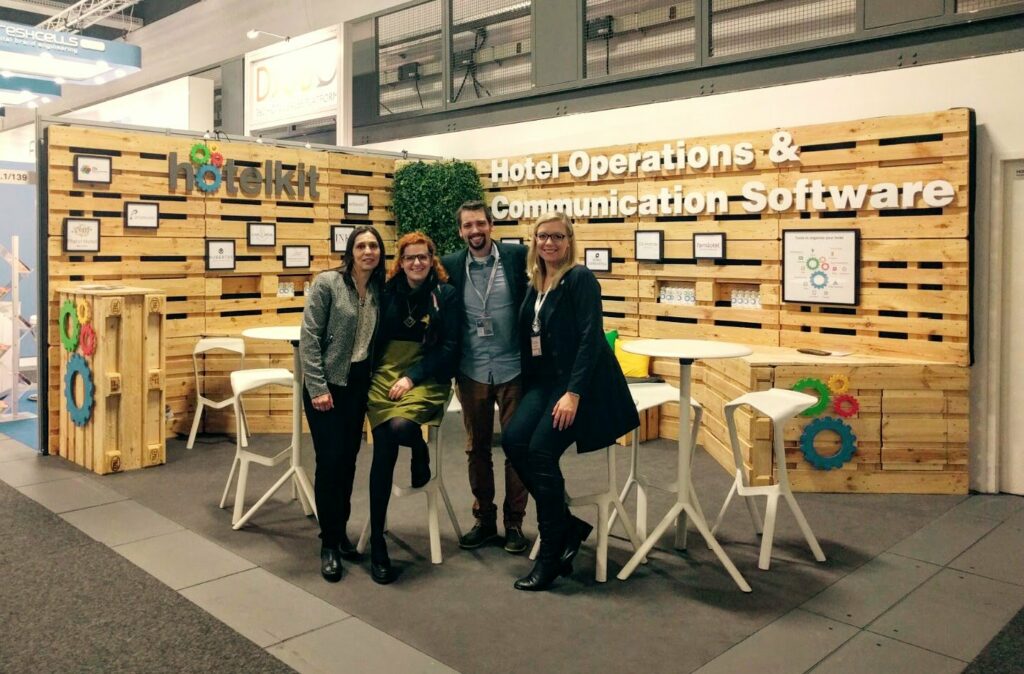
Focus: Hotel Communication Tool
Hotel Kit is a tool that provides communication back and forth between different departments. What we think is great about Hotel Kit is it allows for collaborative communication within and outside your group. And they had a really cool, recycled stand!
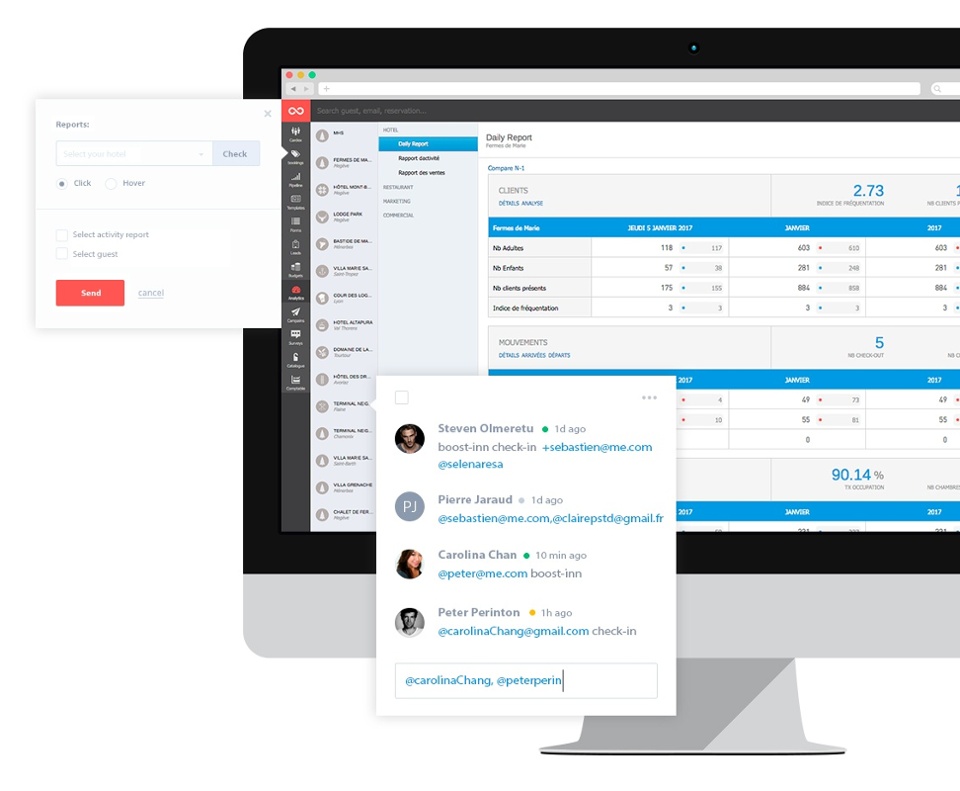
Focus: Analytics and CRM
Boost –inn is a suite of applications used to help unclutter unnecessary tasks. With their wide array of tools, they assist with CRM, booking, self check-in and even provide analytics. What we love about Boost inn is their ability to focus on the guest by gathering all the data and centralizing it into one place. This is a great tool for hotels of all sizes.
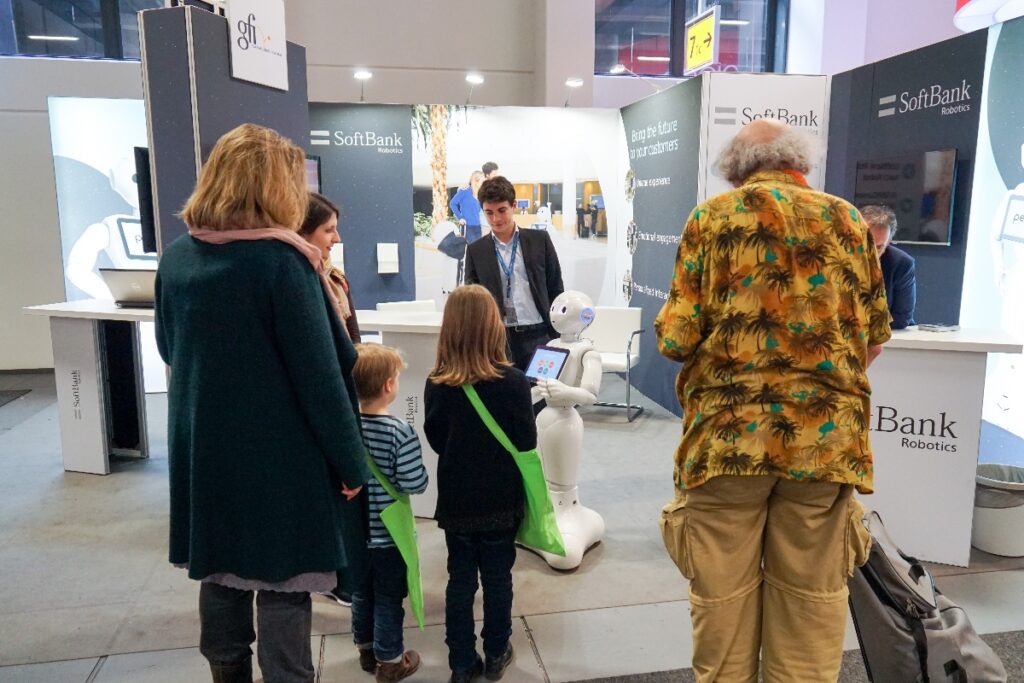
Focus: Using Robots to improve guest experience
SoftBank Robotics is focused on using robots to improve the guest experience. What’s great about the robots is that you are able to program them for your business to enrich your guest experience. Guests are able to interact with the Robots based upon the settings they are programmed with.
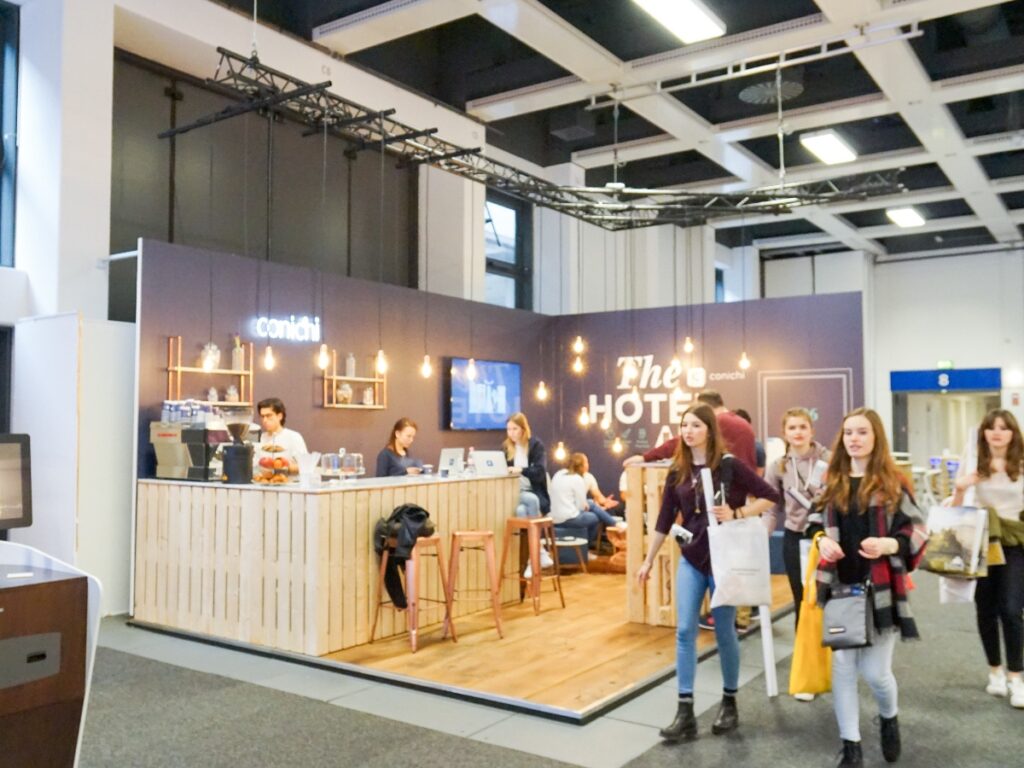
Focus: Digitalizing the Room Key & Mobile payment
With Conichi guests are able to by pass waiting in line at the guest counter check in and go straight to their room. Once they approach their room they are able to use their digital key to open their door. Upon leaving the hotel they can quickly us the app to make mobile payments. This is a great way for hotels to go green and use a digital room key.
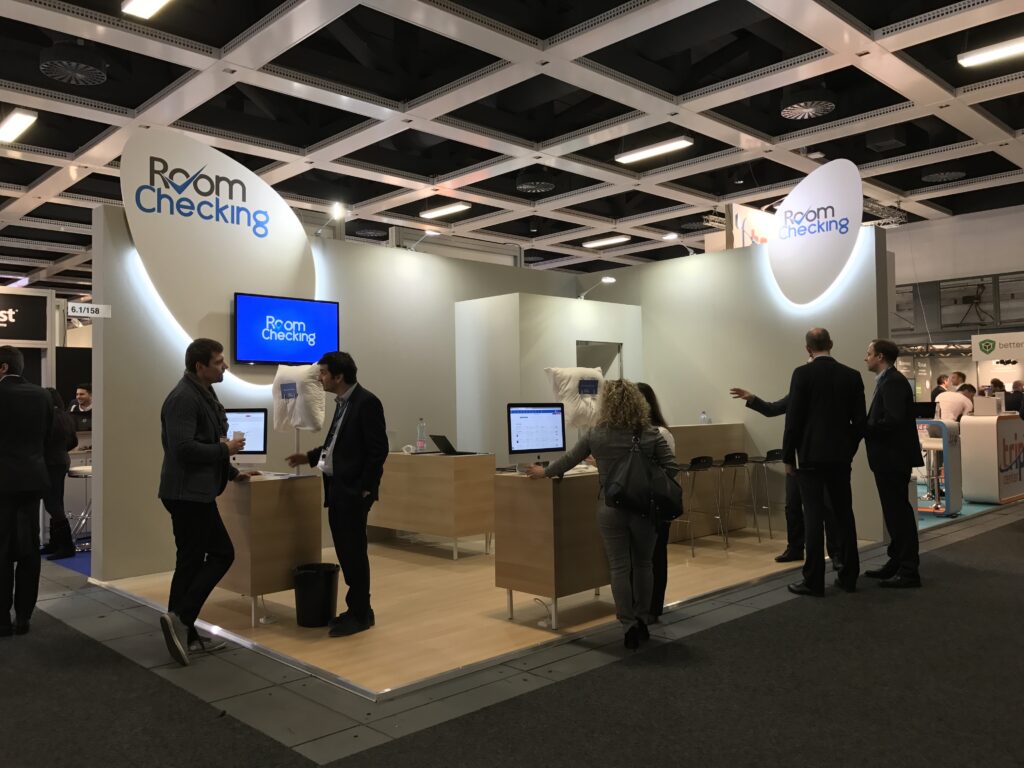
Focus: Housekeeping, Maintenance, and Management tool
This was the first year that RoomChecking attended ITB. RoomChecking is a communication tool aimed to improve the efficiencies of the housekeeper and maintenance team. By using RoomChecking and having access to your housekeeping and maintenance analytics we believe this is key to having strong a hotel staff and improving the guest experience.
We were happy to see so many awesome hotel technology startups at ITB, there wasn't even enough space in the hall assigned to hotel technology, in fact I think there were 5 halls only with hotel tech and the stands were great. As the industry keeps saying, hotel technology is becoming a big big deal and we're happy to bring our part to making hotel operations better.